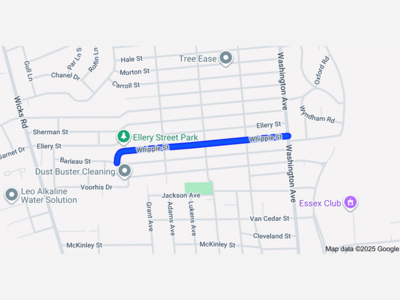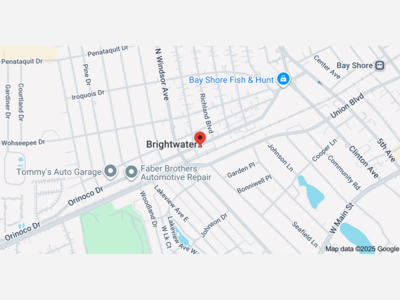"Former President Trump Abruptly Walks Out of NYC Courtroom Amid Defamation Trial's Closing Arguments"
Closing arguements are expected in the former president's defamation trial in Manhattan.
In a dramatic turn of events at a Manhattan federal court, former President Donald Trump made headlines as he abruptly walked out during the closing arguments of a defamation trial. The trial, initiated by writer E. Jean Carroll, sought millions of dollars in damages for alleged defamation by Trump. Attorney Roberta Kaplan, representing Carroll, used her closing argument to emphasize the need for the jury to send a message against the perceived abuse of her client.
U.S. District Judge Lewis A. Kaplan intervened during the closing argument to make a record of Trump's unexpected departure from the courtroom. The walkout occurred shortly after the closing arguments commenced and followed a tense moment where the judge had warned Trump's attorney, Alina Habba. The judge, expressing displeasure, had even threatened to send Habba to jail for continuing to speak after being told she was finished.
The atmosphere in the courtroom escalated further, underlining the tension surrounding the trial. Despite sharing the same last name, it's important to note that Roberta Kaplan, representing the writer, and Judge Lewis A. Kaplan are unrelated. The incident marked a highly unusual and contentious episode in the legal proceedings, adding an unexpected twist to the high-profile defamation case.
Former President Donald Trump exhibited signs of agitation throughout the morning, visibly shaking his head during Roberta Kaplan's closing arguments in the defamation case. The tension reached a peak when Trump abruptly walked out of the courtroom, a move that occurred shortly after Kaplan asserted, "Donald Trump has tried to normalize conduct that is abnormal." This statement likely added to the charged atmosphere surrounding the trial.
The closing arguments unfolded in the defamation case against Trump, following a day when he left the courtroom frustrated for not being given an opportunity to counter E. Jean Carroll's sexual abuse accusations. The lawyers were providing their summations for the nine jurors, who were set to begin deliberating later in the day. The central question for the jurors was whether Carroll, a renowned advice columnist, deserved more than the $5 million she was awarded in a separate trial the previous year.
The legal proceedings took a surprising turn as Trump managed to navigate around a federal judge's restrictions on what he could say during his brief stint on the witness stand the day before. Despite the limitations, Trump's testimony lasted only three minutes, creating an additional layer of complexity and intrigue in a trial already marked by its contentious nature.
During his brief testimony, former President Donald Trump stated, "She said something that I considered to be a false accusation," emphasizing that his intention was to defend himself, his family, and the presidency. Trump's assertion continued with the acknowledgment that he felt compelled to address what he perceived as a false accusation against him. However, the judge promptly instructed the jury to disregard both of these remarks, underlining the legal boundaries surrounding the trial.
In a previous trial held in May, a different jury concluded that Trump had sexually abused E. Jean Carroll in 1996 and had subsequently defamed her in 2022 by suggesting she fabricated the accusation for book sales. Trump, currently the Republican frontrunner in the upcoming presidential election, expressed regret for not testifying in that trial, blaming his lawyers for giving him what he considered to be poor advice.
The present jury, tasked with a limited purpose, was informed by Judge Kaplan that their role is to determine if additional damages are owed for statements made by Trump in June 2019 while he was president. The judge will provide legal instructions to the jurors before they deliberate, stressing that they must accept the verdict reached in the previous trial and focus solely on the question of additional damages related to Trump's statements from 2019. This case, marked by years of court appeals, brings a new layer of complexity to the legal proceedings.
In the ongoing legal battle, E. Jean Carroll's lawyers are seeking over $10 million in compensatory and punitive damages. Trump's attorney, Alina Habba, has argued against these damages, contending that Carroll's association with Trump had already provided her with the desired fame. Habba further asserted that any death threats Carroll received should not be attributed to Trump's remarks.
Carroll, who is 80 years old, testified in the previous trial that a chance encounter with Trump at Bergdorf Goodman turned flirtatious until he allegedly cornered her in a changing room. While the jury rejected her claim of rape, it did agree that she was sexually abused. Last week, Carroll testified that her career had been significantly harmed by Trump's statements over the past five years, especially during his recent presidential campaign. She shared details of the distressing impact on her life, including purchasing bullets for a firearm inherited from her father and installing an electronic fence around her home.
During his recent testimony, Trump maintained his denial of Carroll's accusations, standing "100%" behind comments he made in an October 2002 deposition where he referred to her as "sick" and a "whack job." Judge Kaplan plans to instruct the jury that the previous year's verdict concluded Trump digitally penetrated Carroll but did not find him guilty of rape according to New York state law's definition. The trial continues to unfold with each side presenting its arguments in this complex and highly scrutinized case.
During a conference between lawyers and the judge, Trump's attorney Michael Madaio argued against disclosing specific details of the sexual abuse allegations made by E. Jean Carroll, claiming it was "completely unnecessary and inflammatory." However, Judge Kaplan rejected this argument, emphasizing the importance of transparency in the trial.
It's worth noting that, in line with journalistic standards, The Associated Press typically refrains from naming individuals who claim to have been sexually assaulted unless they choose to come forward publicly, as E. Jean Carroll has done in this case. The trial continues with both sides presenting their arguments and the judge overseeing the proceedings to ensure a fair and lawful process.
For updates, subscribe to our free newsletter!
Support your local news!
More News from New York
- Lindenhurst Man Arrested For Christmas Night Stabbing At CVS Suffolk County Police Recently Arrested a 43-year-old Lindenhurst man for Allegedly Fatally Stabbing a CVS Employee on Christmas night.
- Man Killed in Stabbing at the CVS in Lindenhurst A 23-year-old employee was stabbed to death Christmas night at the CVS on Wellwood avenue




